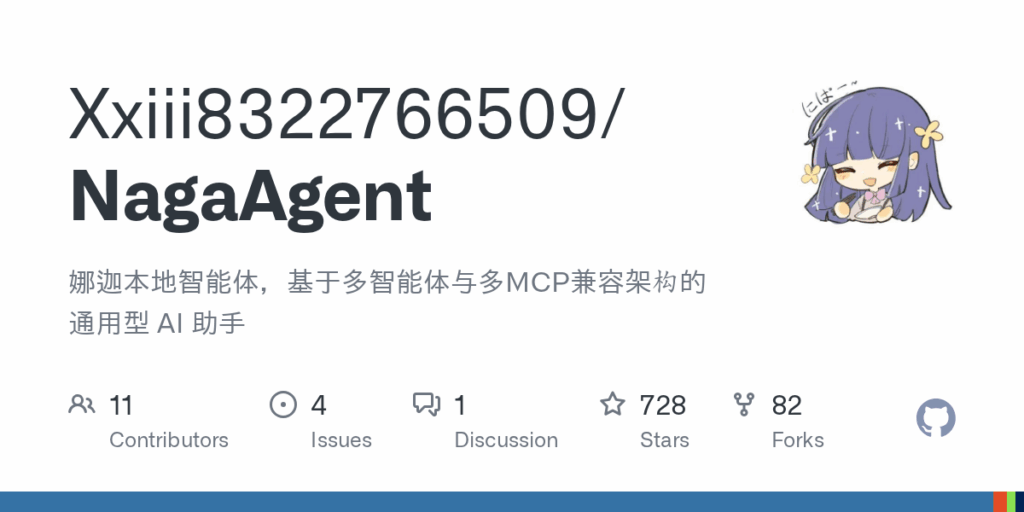NagaAgent
Basic Information
NagaAgent is an extensible multi-agent AI assistant project that provides a full local runtime for building, running and managing conversational agents and MCP services. The repository bundles a PyQt5 desktop interface, a FastAPI RESTful server with Server-Sent Events support, a GRAG knowledge-graph memory layer backed by Neo4j, and a modular MCP/Agent runtime that dynamically discovers, registers and hot-reloads agent implementations. It supports multiple LLM providers and models through configurable API integrations, streaming voice I/O with Edge-TTS and PyAudio, browser automation via Playwright, and standardized agent manifests for interoperable agents. The codebase includes startup scripts for Windows, macOS and Linux, environment checks, example agent configuration formats and tools to import historical logs into the knowledge graph. The project aims to run as a local, multi-platform assistant with session isolation, lifecycle management and a unified tool-calling loop.








